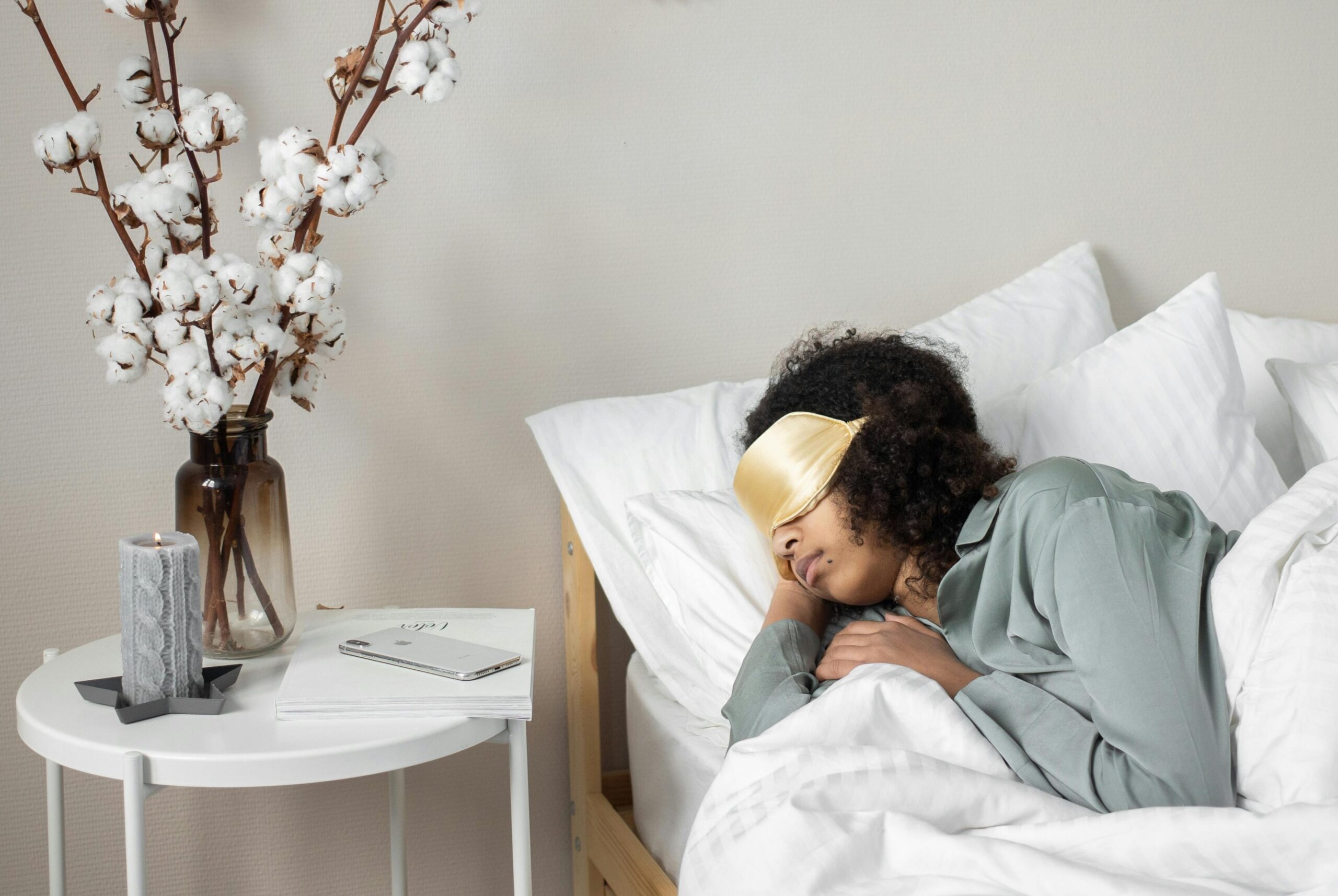Most of us know about the essential habits of a good night’s sleep: get eight hours, avoid caffeine late in the day, and keep your bedroom dark and quiet.
But what if you’re doing all of that and still waking up feeling groggy, restless, or just not quite yourself?
You wouldn’t be alone. In fact, almost 70% of UK adults say they typically feel tired when they wake up, even after a full night’s sleep.
Sleep hygiene goes beyond blackout curtains and chamomile tea. Everyday habits (many of them seemingly harmless) could be silently interfering with your body’s natural sleep cycle. And it’s not always obvious.
Whether you’re struggling to fall asleep, waking up in the middle of the night, or just not feeling refreshed in the morning, it might be time to take a closer look at what’s going on behind the scenes.
Here are five surprising habits that could be holding you back from the deep, restorative sleep your body needs.
Why do sleep habits matter?
Good sleep isn’t just about the number of hours you get. It’s about the quality of those hours, and whether your body has the right conditions to properly rest and recover.
When small daily habits get in the way, they can prevent you from reaching the deeper sleep stages that are vital for physical health, mental clarity, and emotional wellbeing.
The good news is that these habits are easy to change once you know what to look for. Making small tweaks to your routine can lead to real improvements, without needing a major lifestyle overhaul.
1) Scrolling before bed
It’s one of the most common wind-down rituals, but using your phone, tablet, or TV right before bed can sabotage your sleep in more ways than one.
You’ve likely heard it before, but it’s worth repeating: blue light exposure before bed can play havoc with your sleep cycle. Blue light emitted from screens interferes with your body’s melatonin production, making it harder to fall asleep naturally.
But it’s not just the light from your screen that’s to blame, it’s what you’re looking at.
Social media, news, and emails often trigger emotional or mental stimulation, which your brain doesn’t need when you’re trying to wind down.
Swap the scroll: Switch to ‘night mode’ on your devices in the evening to reduce blue light and avoid screens altogether for at least 30–60 minutes before bed. Replace scrolling with something calming like reading a book, journalling, or stretching.

2) Sleeping in on weekends
A weekend lie-in might seem like the ultimate treat, especially after a long week. But shifting your wake-up time significantly can actually confuse your body’s internal clock.
This makes it harder to fall asleep on Sunday night and even tougher to get up on Monday morning.
Known as “social jet lag”, the mismatch between your weekday and weekend schedules can leave you feeling groggier than if you’d stuck to your usual routine.
Try this instead: Aim for consistency, even on weekends. You don’t have to wake up at exactly the same time, but try to keep it within an hour or so. If you’re feeling extra tired, a short nap earlier in the day can help without throwing off your natural rhythm.
3) Eating too close to bedtime
Late-night snacks aren’t always a bad thing, but heavy or sugary foods before bed can be disruptive.
Your digestive system needs time to process what you’ve eaten, and giving it a large meal just before sleep can trigger discomfort, bloating, or even heartburn.
On top of that, high-sugar snacks can cause blood sugar spikes and crashes, which may lead to restless sleep or sudden wake-ups during the night.
Eating within a couple of hours of going to bed can trigger digestion-related issues like bloating, discomfort, or acid reflux.
Even ‘healthy’ foods, like fruit can raise blood sugar and stimulate your metabolism just when your body should be slowing down.
What to do if you’re hungry: If you’re genuinely hungry close to bedtime, stick to something light and easy to digest. Wholemeal toast with peanut butter, almonds, or a low-sugar yoghurt are all good options.

4) Wearing the wrong pyjamas
Your sleepwear has a big impact on how comfortable you feel through the night.
Synthetic fabrics like polyester can trap heat and moisture, causing you to overheat or sweat.
Even if you drift off quickly, you may find yourself waking up frequently because you’re too warm or uncomfortable.
What should you wear to bed instead?
Choose breathable materials like cotton or bamboo. These fabrics help regulate body temperature and allow better airflow, which is especially helpful if you tend to get hot at night.
Comfort is key, so find sleepwear that fits well and helps you stay relaxed.
5) Having a messy bedroom
A cluttered bedroom might not seem like a big deal, especially once the lights are off. But your environment plays a huge role in how easily you can relax and stay asleep.
A messy space can feel mentally overstimulating, even if you don’t consciously notice it. It can also create a subtle sense of stress, making it harder to wind down.
Tips for keeping your bedroom calming for sleep:
- Clear off surfaces
- Avoid unnecessary clutter
- Use soft, warm lighting in the evening
- Use relaxing scents like lavender or chamomile through diffusers, pillow sprays, or candles

Get a more restorative sleep in no time!
Small changes can have a big impact on your sleep quality.
By making these small adjustments to your evening habits and environment, you can create the right conditions for deeper rest and a clearer head the next day.
Once your sleep improves, you might find your energy levels, mood, and focus naturally follow suit.
Looking for more ways to increase your energy, or struggling with stress during the day? We’ve got you covered.
Check out our blog post on how to increase energy and reduce stress for simple changes that can make a big difference.




